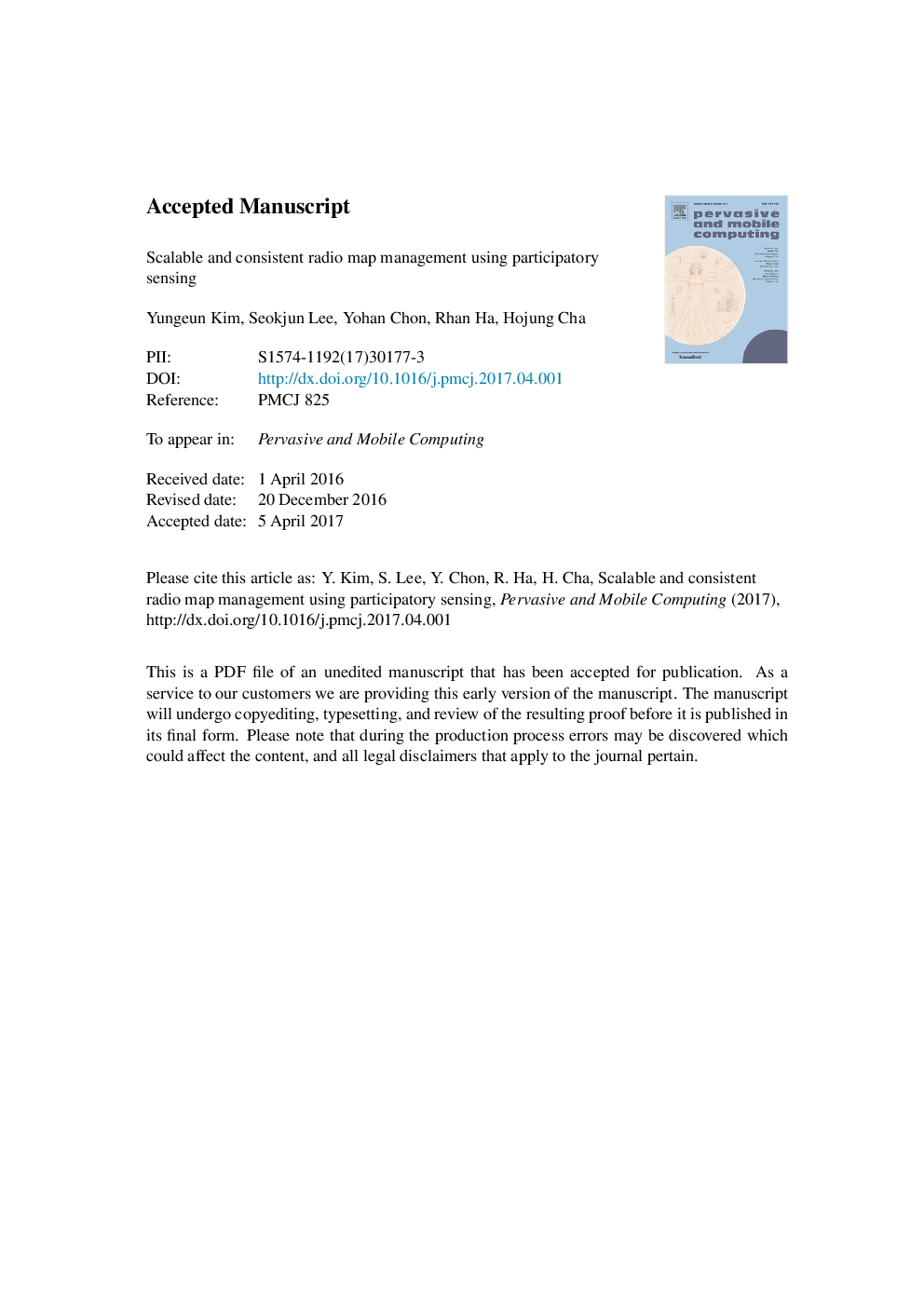| Article ID | Journal | Published Year | Pages | File Type |
|---|---|---|---|---|
| 4957414 | Pervasive and Mobile Computing | 2017 | 20 Pages |
Abstract
Although Wi-Fi fingerprinting is a promising solution for indoor localization, its widespread use is limited due to the necessity of time-consuming site surveys. Recently, active research has been conducted to reduce site-survey costs with participatory sensing. While previous work focused on the expansion of radio map coverage, in this paper, we deal with the issues on the scalability and consistency of radio map. In participatory sensing, radio map construction should be able to handle massive data collected from many people over a long period with limited storage capacity. The radio map should also guarantee consistency, which means consistent accuracy regardless of the RSS variances caused by environmental dynamics. This paper proposes a scalable and consistent radio map management scheme. Using multiple fingerprints per location, we minimize accuracy degradation caused by the RSS variance problem. To overcome the scalability issue, we control the number of fingerprints by a two-phase fingerprints selection algorithm. For each location, the proposed scheme first clusters the collected fingerprints and removes all fingerprints except for the centroids. Then, an optimal set of fingerprints is found by comparing the fingerprints in neighboring locations. We validate the efficiency of the proposed scheme with real experiments in various environments.
Related Topics
Physical Sciences and Engineering
Computer Science
Computer Networks and Communications
Authors
Yungeun Kim, Seokjun Lee, Yohan Chon, Rhan Ha, Hojung Cha,
